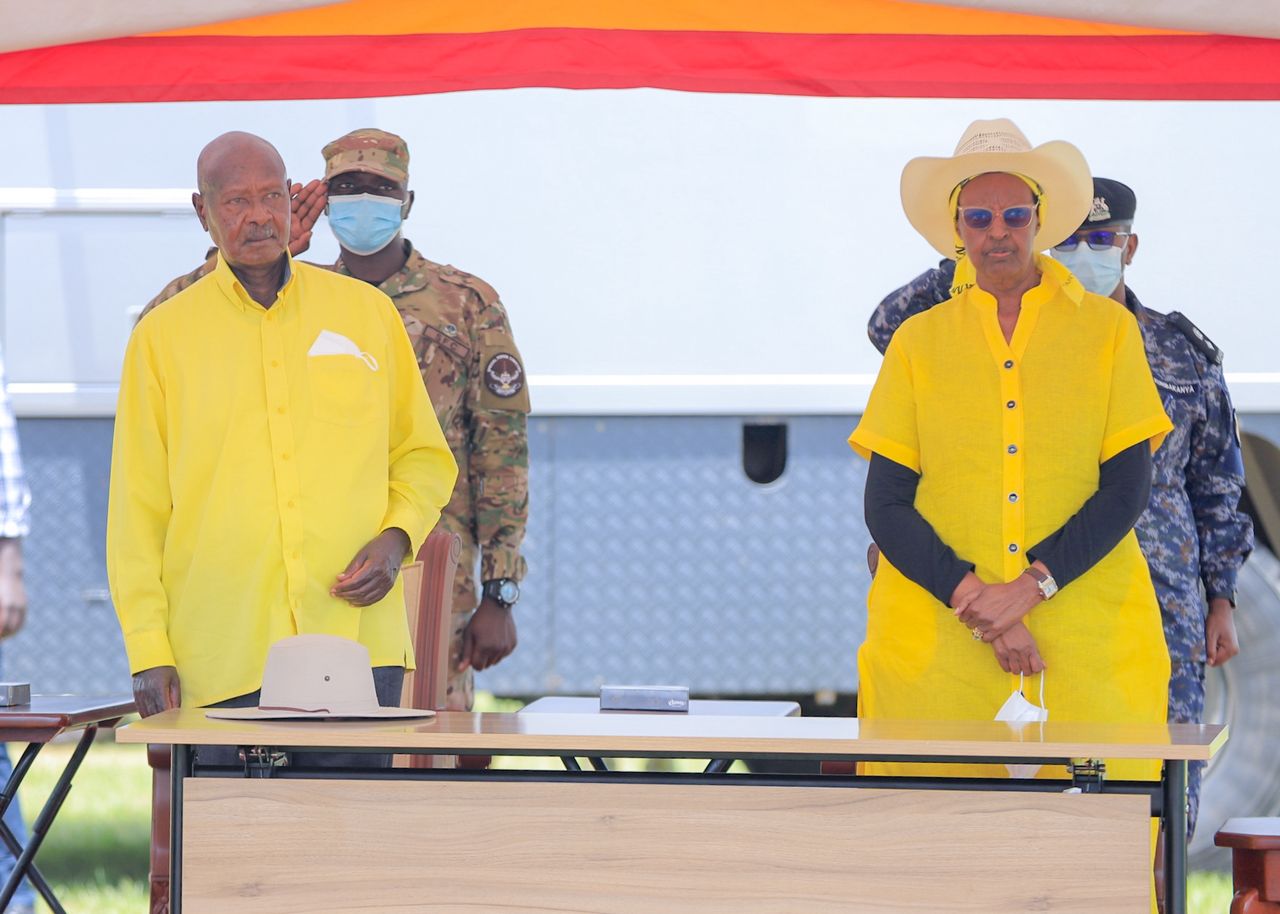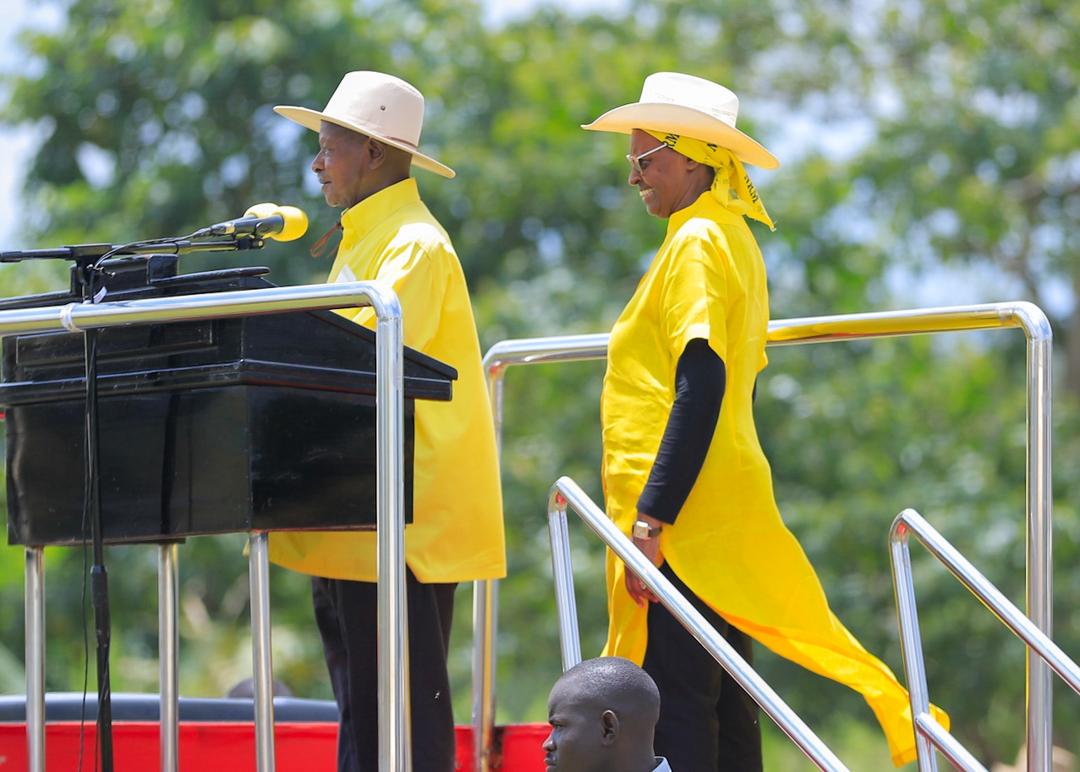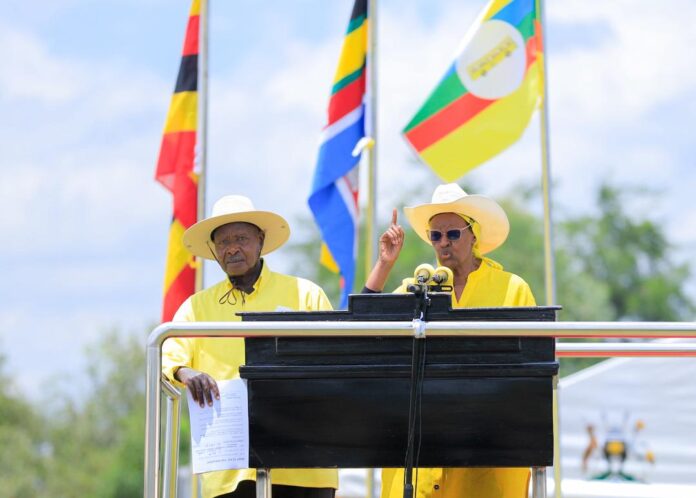First Lady and Minister of Education and Sports, Maama Janet Museveni, has appealed to Ugandan youth to safeguard the nation’s peace and stability as the country prepares for the 2026 general elections.
Speaking at a campaign rally in Nebbi District on Saturday, where she accompanied President Yoweri Kaguta Museveni, Maama Janet emphasized that peace is the cornerstone of Uganda’s progress and prosperity.

“Each one of us who has a vote carries the responsibility to vote for a peaceful Uganda,” she said, reminding the crowd that many older citizens still remember the difficult years of violence and turmoil before peace was restored.
She warned that peace should never be taken for granted, noting that it is the foundation upon which development and transformation are built.
“Development, prosperity, and transformation can only thrive when peace and freedom are maintained. We all have a duty to our families, districts, and countryto protect Uganda’s peace. God is using the NRM in this season to sustain that freedom and stability.”,she said

President Museveni, the NRM’s presidential flag bearer, echoed her message, attributing Uganda’s enduring peace to the ruling party’s inclusive ideology and firm stance against sectarianism.
“The NRM has been active for 65 years,the peace we enjoy today exists because we reject sectarianism be it religious, tribal, or gender-based. We value every citizen equally.”,he said.
He recalled that Uganda’s early political movements were divided along religious and tribal lines, a factor that hindered unity and led to instability.
“By 1965, we saw the dangers of sectarianism and decided to take a different path. That’s how we began forming youth study groups, which eventually evolved into the NRM.”,Museveni explained
The President credited the NRM’s ideology of patriotism and Pan-Africanism for uniting Ugandans and building strong, non-discriminatory national institutions such as the army, police, and civil service.
Highlighting progress in education, Museveni noted that Nebbi District now has several government schools compared to the early 1960s when northern and eastern Uganda had none offering A-level education.

“In 1961, Uganda had only three A-level schools in the entire country. Today, Nebbi alone has eight government secondary schools offering A-level. That’s real progress.”,he said.
Museveni reaffirmed his government’s commitment to improving infrastructure and social services in the West Nile sub-region, pledging continued investment in roads and quality education to ensure equitable development across Uganda.






